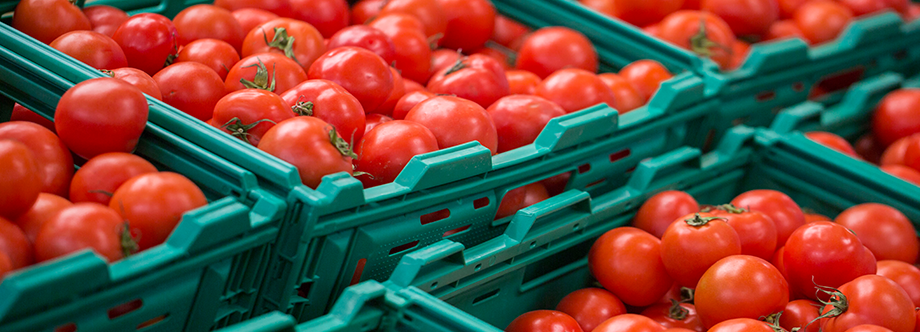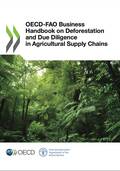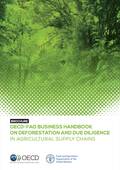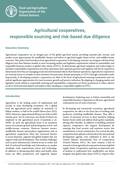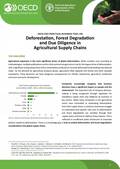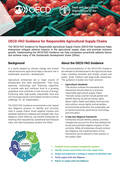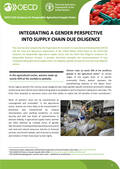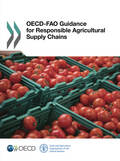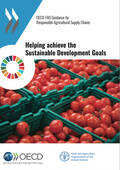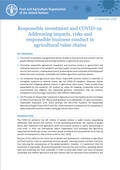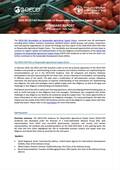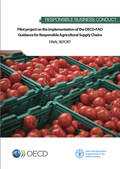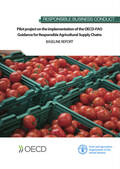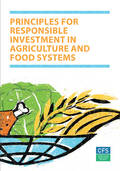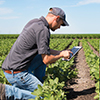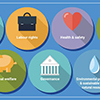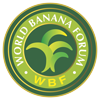Responsible global value chains for agricultural products
Globalization has revolutionized the ways agro-enterprises engage in business. Food production has become easier, quicker and more accessible as a result of interconnected global value chains and a sharp increase in demand for food. To meet the needs of a growing world population, increased food production will inevitably have consequences for societies, including labour, food security and human rights. It will also generate environmental concerns related to the availability of land and water. Businesses, governments and civil society have a critical role to play in addressing impacts and ensuring that responsible business conduct (RBC) supports inclusive sustainable development.
FAO promotes responsible business conduct among governments, business, civil society and other stakeholders by:
| encouraging enterprises to apply the OECD-FAO Guidance for Responsible Agricultural Supply Chains as a tool to reduce adverse business impacts, de-risk business operations, and improve financial bottom lines while addressing poverty and supporting inclusive growth; |
| enabling development by communicating the range of potential business impacts across agricultural value chains; including on labour rights; occupational health and safety; food security; land tenure; animal welfare; natural resources (etc.) and their link to the Sustainable Development Goals (SDGs); |
| fostering multi-stakeholder cooperation among companies, governments, civil society and others to transform risks into opportunities for development, with support to vulnerable groups such as women and youth; |
| sharing experiences through knowledge exchange, best practices and peer learning across regions, countries, and agricultural sectors (eg. tropical fruits). |
Featured Resources
-
Published: July 2023
Available in: French | Spanish | Indonesian
-
Agricultural cooperatives, responsible sourcing and risk-based due diligence
Published: September 2022
-
OECD-FAO Business Handbook on Deforestation and Due Diligence in Agricultural Supply Chains
Published: December 2021
-
OECD- FAO Guidance for Responsible Agricultural Supply Chains
Published: June 2016
Available in: Arabic | Chinese | English | French | Indonesian | Russian | Spanish | German | Portuguese | Japanese |Myanmar| Ukrainian | Vietnamese | Polish
-

